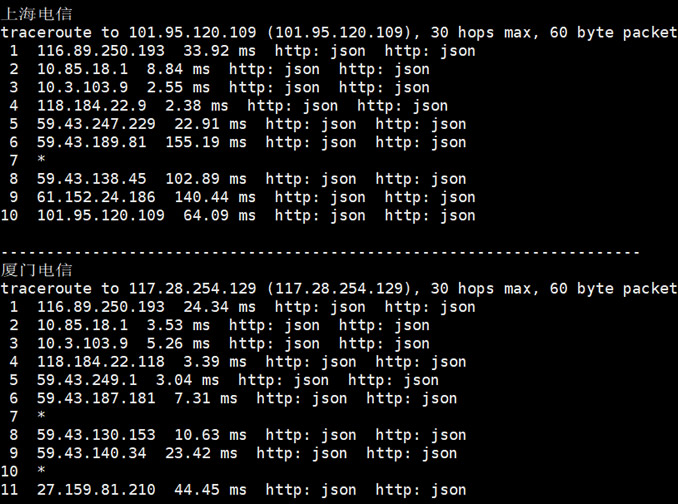opposedAirAsia Mystery Key Questions About QZ8501
By Tracy Connor
The investigation into the disappearance of AirAsia Flight 8501 has centered on one moment:a request by the pilot to climb 6,000 feet because of weather,which was denied by air trafficcontro l.
But what the crew was experiencing before that—which led them to make the request—isunknown.And what happened to the plane in the following minutes also remains a mystery,two days after the aircraft vanished from radar.
Indonesian officials have said they believe the Airbus jet went straight to the bottom of thesea,presumably killing all 162 on board.But Greg Feith,a former investigator for theNational Transportation Safety Board and NBC News'aviation expert, says there are manyquestions about the incident that still need to be answered.
Did weather really take down the jet?
It's possible,of course,but a half-dozen other planes passed through the storm-struck areawhere the AirAsia jet vanished. "What did those pilots know that the accident crew didn'tknow?"Feith wonders. "What were they using for decision-making that allowed them to getthrough that line?"
The weather system was big, so climbing from 32,000 to 38,000 feet would not have allowedthe QZ8501 pilots to completely avoid it,he said.But the request for a 6,000-foot change—as opposed to, say,2,000 feet—had to be rooted in a concrete concern.
He noted that it's customary for pilots to report unusual conditions to air traffic control andthat any other cockpit on that frequency would hear them.Feith wants to know whatwarnings the AirAsia crew heard about turbulence or heavy rain and whether they promptedthe altitude change request.
Or did they—along with the air traffic controllers—think they could safely get through thestorm, just like the other p lanes did,but conditions deteriorated too quickly? "Thunderstormslike this are very dynamic,"Feith said. "It's a high-energy situation."
Who was in control of the plane?
Typically, the crew of a commercial airliner will fly it on autopilot as long as possible, evenwhen making an altitude change.But the jet could have hit turbulence from the storm thatbecame too much for autopilot to handle—forcing the pilot to take over,Feith said.Or thepilot could have decided he could do a better job ofresponding to the changing weatherconditions.
Why haven' t they been able to find the jet?
where it went down.A very dense thunderstorm could have prevented the signal frombouncing back,Feith said.A change in the plane's attitude—whether it is pitching up ordown or banking to the left or right—could also interfere with radar.As a result, the planecould have flown on for some minutes off radar before it crashed.
After the crew lost control, the aircraft would not necessarily have plunged straight downinto the water. It could have gone into a spiral, reversed course or shot off in any directionbefore hitting the water,making for a large search area. If the plane was intact when it hit thewater, there will b e les s debris than if it broke up in midair.
Did the plane have ACARS?
The Aircraft Communications Addressing and Reporting System sends flight data fromsensors to ground stations in short bursts,providing vital clues in the case of an accident.When Air France 447 crashed into the Atlantic in 2009,putting its black boxes out of reachuntil 2011, it was ACARS messages that revealed the pilots were getting incorrect speed data."I would love to know if AirAsia had an ACARS subscription and if not,why not?"Feithsaid.
But in the case of another flight,Air France Flight 447,which disappeared off the coast ofBrazil in 2009, investigators had access to a cascade of error messages that were sent overthe ACARS system that indicated,among other issues,a problem with the plane's airspeedsensors that ultimately disabled the plane's autopilot system.
AirAsia and local officials have so far not divulged much technical information about theflight,but Indonesia on Monday asked U.S. investigators,via the State Department, to assistin the search—so perhaps more knowledge will be forthcoming.
Friends, Relatives Await News on
Missing AirAsia Jet
NBC News
Tracy Connor
Tracy Connor is a senior writer for NBC News.She started this role in December,2012.Connor is responsible. . .Expand Bio
- opposedAirAsia Mystery Key Questions About QZ8501相关文档
- 飞机亚航QZ8501航班失联23小时 搜救工作正全力展开
- changeAirAsia Mystery Key Questions About QZ8501
- 搜救亚航失事飞机已找到 四大原因致亚航qz8501较马航mh370更快发现
- 印尼.2014年空难频发:亚航QZ8501航班
- 事故qz8501调查报告[最新版]
- qz8501QZ8501坠机原因是什么
香港2GB内存DIYVM2核(¥50月)香港沙田CN2云服务器
DiyVM 香港沙田机房,也是采用的CN2优化线路,目前也有入手且在使用中,我个人感觉如果中文业务需要用到的话虽然日本机房也是CN2,但是线路的稳定性不如香港机房,所以我们在这篇文章中亲测看看香港机房,然后对比之前看到的日本机房。香港机房的配置信息。CPU内存 硬盘带宽IP价格购买地址2核2G50G2M1¥50/月选择方案4核4G60G3M1¥100/月选择方案4核8G70G3M4¥200/月选择...

HostNamaste$24 /年,美国独立日VPS优惠/1核1G/30GB/1Gbps不限流量/可选达拉斯和纽约机房/免费Windows系统/
HostNamaste是一家成立于2016年3月的印度IDC商家,目前有美国洛杉矶、达拉斯、杰克逊维尔、法国鲁贝、俄罗斯莫斯科、印度孟买、加拿大魁北克机房。其中洛杉矶是Quadranet也就是我们常说的QN机房(也有CC机房,可发工单让客服改机房);达拉斯是ColoCrossing也就是我们常说的CC机房;杰克逊维尔和法国鲁贝是OVH的高防机房。采用主流的OpenVZ和KVM架构,支持ipv6,免...

SoftShellWeb:台湾(台北)VPS年付49美元起,荷兰VPS年付24美元起
SoftShellWeb是一家2019年成立的国外主机商,商家在英格兰注册,提供的产品包括虚拟主机和VPS,其中VPS基于KVM架构,采用SSD硬盘,提供IPv4+IPv6,可选美国(圣何塞)、荷兰(阿姆斯特丹)和台湾(台北)等机房。商家近期推出台湾和荷兰年付特价VPS主机,其中台湾VPS最低年付49美元,荷兰VPS年付24美元起。台湾VPSCPU:1core内存:2GB硬盘:20GB SSD流量...

-
在线漏洞检测求免费的漏洞扫描工具网站运营刚创业的网站运营怎么做?中小企业信息化信息化为中小企业发展带来了哪些机遇雅虎天盾雅虎天盾、瑞星杀毒软件、瑞星防火墙、卡卡上网安全助手能同时使用吗?idc前线永恒之塔内侧 删档吗 ?bt封杀北京禁用BT下载,是真的吗?为什么?二层交换机什么是二层交换机安全漏洞web安全漏洞有哪些小米手柄小米手柄怎么用?三星s8什么时候上市三星盖乐世S8上市时间公布 三星盖乐世s8多少钱